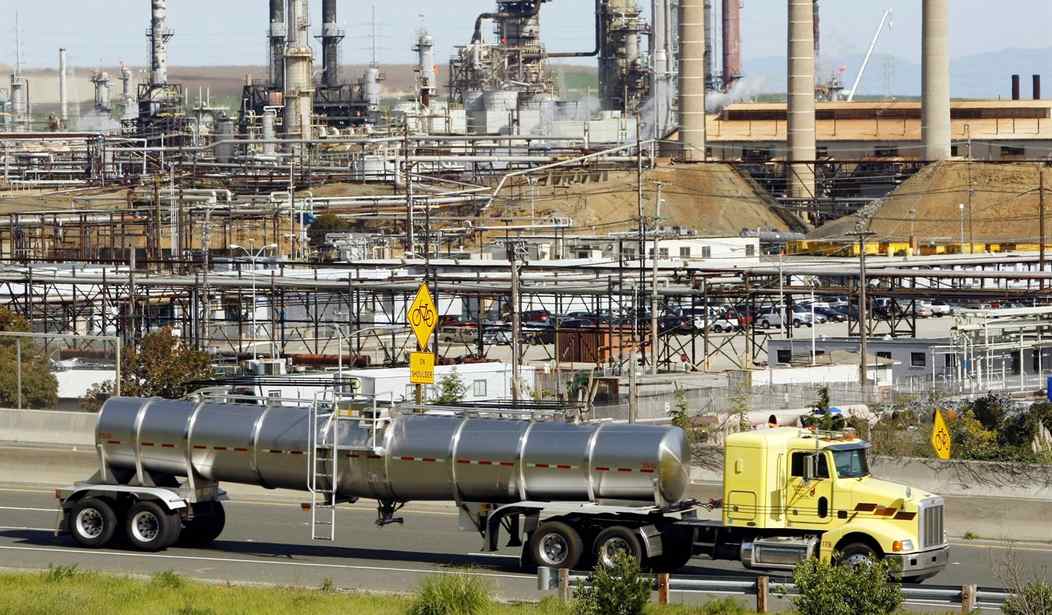Environmentalists can't get enough of the coronavirus. For months, green activists have praised stay-at-home orders for reducing greenhouse gas emissions. Rather than lamenting the lockdown for pushing 40 million Americans into unemployment, environmentalists have cheered it as the end of fossil fuels.
Fortunately for the millions of Americans who rely on oil and natural gas to power their lives, fossil fuels aren't going anywhere.
Lockdowns and travel restrictions certainly created a rough patch for the energy industry. But as the country begins reopening, energy demand will rise once again. Fossil fuels remain essential to our way of life. And they will play an indispensable part in powering the world's economic recovery in the coming months.
The COVID-19 lockdowns were only a minor setback for the energy industry. Hysterical reports of negative oil futures and plummeting demand made it seem like the pandemic had destroyed fossil fuels once and for all. But as Obama administration energy advisor Jason Bordoff recently observed, a 30 percent drop in demand was a small downturn relative to the severity of global lockdowns.
Moreover, oil markets have already begun to recover from the COVID-19 setback. Certain crude futures hit a two-month high of $33.32 per barrel in mid-May after going negative in April. Between the weeks of April 10 and May 15, oil demand rose from 13.8 to 16.6 million barrels per day. These rebounding future prices reflect the safe assumption that energy demand will increase as states begin to ease COVID-19 restrictions.
Recommended
The energy sector's resilience shouldn't take anyone by surprise. Every time the industry faces a crisis, environmentalists predict its demise. And every time, the industry emerges from the crisis stronger than before.
For instance, many doubted that the energy industry would recover from the 2008 financial crisis, which sent oil prices plummeting by more than 75 percent. But even then, the industry didn't crumble. Instead, it responded with an unprecedented wave of innovation that benefited the environment and consumers alike.
Since 2010, advances in hydraulic fracturing have empowered domestic energy firms to access previously unattainable energy stores trapped beneath shale rock. So-called "fracking" has helped the United States become the world's leading producer of oil and natural gas, surpassing both Russia and Saudi Arabia.
This newfound abundance of natural gas has helped the country transition away from coal, which emits more carbon dioxide than any other fossil fuel. Just last year, coal-fired power generation dropped almost 20 percent.
Fracking also keeps energy prices low for the millions of Americans who rely on natural gas to power their homes and businesses. In 2019, natural gas accounted for more than 38 percent of the nation's power -- a larger share than any other fuel.
Slowly but surely, America has begun to emerge from months of lockdown. As the country starts returning to normal, so will demand for oil and natural gas. Unfortunately for environmentalists, COVID-19 hardly spells the end of fossil fuels in the United States.
Regina Thomson is president of the Colorado Issues Coalition, a nonprofit supporting reform in government, protecting civil liberties, and addressing issues that are timely and critical to voters.

























Join the conversation as a VIP Member